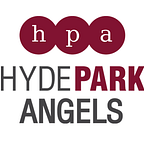How Option Pools Work
The Ultimate Shorthand Guide
In the first post of our cap table series, we broke down a cap table into its most basic parts and defined each one. As a quick refresher, cap tables all of the shareholders in your business and lay out who owns what, how much each one owns, and what value is assigned to the stock they do own.
With a clear understanding of the structure, purpose, and makeup of cap tables, we can start layering on additional elements. Namely, we can focus on one of the most critical parts of your term sheet negotiations: option pools.
Option pools, simply put, are a percentage of shares in your company that don’t belong to you or your investors, but instead are set aside for future hiring and retention needs. The best way to understand option pools and how they work is to think about them in terms of shares.
Want more resources like this? Subscribe to the HPA newsletter!
When you start your business, you create a certain number of shares. At first, you and your co-founders own 100% of these shares. When you take on an investment, you are agreeing to exchange a percentage of these shares for the actual capital. However, VC term sheets will also often include a provision that assumes an option pool. Again, this is a percentage of shares that have not been granted to anyone at the time of the deal close.
The option pool is generally calculated out of the pre-money shares, because investors want to be able to simply calculate their post-money percentage ownership. Moreover, the investors do not want to dilute themselves immediately upon investment.
So let’s take a look at all of this information included in our original cap table. In this example we will assume that the agreed upon option pool is 15% post-money % ownership.
The first section of the table demonstrates the original shares and original % ownership as seen in previous posts.
As seen in the next section, the option pool will now be added to the pre-money shares. Since the agreed upon option pool percentage is 15% post-money the number of shares issues on the pre-money will have a higher pre-money % ownership, in this case 19%.
As seen in the last section, the investor makes an investment and receives shares. Now that the investment is complete, the option pool shares that were issued at pre-money equal 15%.
Like what you see? Subscribe to our newsletter!
About Hyde Park Angels
Hyde Park Angels is transforming early-stage investing by taking a people first approach. The organization is the largest and most active angel group in the Midwest. With a membership of over 100 successful entrepreneurs, executives, and venture capitalists, the group provides critical strategic expertise to entrepreneurs and the entrepreneurial community. Nearly 40% of our members have founded a company, 88% are CEO’s, top executives or corporate board members, and 100% invest in startups. By leveraging the members’ deep and broad knowledge of multiple industries and financial capital, Hyde Park Angels has driven multiple exits and invested millions of dollars in over 40 portfolio companies that have created over hundreds of jobs in the Midwest since 2006.
This post is part of the Hyde Park Angels Entrepreneurial Education Series, which brings together successful, influential entrepreneurs and investors to teach entrepreneurs everything they need to know about early-stage investment through events, articles, videos, and more. If you are interested in learning more about similar topics, register for “How to Work with Your Advisors, Board Members, and Investors” on November 12.
About the Authors
Alida Miranda-Wolff
Alida Miranda-Wolff heads up communications and strategy at Hyde Park Angels, crafting and disseminating the organization’s brand in all forms across all channels. In addition to single-handedly building HPA’s integrated communications plan and executing its core elements, Alida manages membership, partnerships, portfolio company support, and all community engagement.
Prior to joining Hyde Park Angels, Alida served in a variety of journalism, marketing, communications, and management roles, specializing in creating spreadable multimedia content for tech-enabled businesses at all stages. Alida has run several Kickstarter campaigns, including one of the most successful in Chicago history, and still mentors companies running their own campaigns.
Alida graduated Phi Beta Kappa from the University of Chicago in 2014 with multiple honors and awards. She remains active in the university of alumni network, serving on five advisory boards and committees. Alida is also a published author and poet, with two poetry chapbooks currently in print, Domestic Scenes and Tree Fingers.
Michael Sachaj
Michael is the Associate Director of Hyde Park Angels. He leads HPA’s investment opportunities through sourcing deals, conducting due-diligence, and providing oversight of the University of Chicago Booth Associate team. Michael joined Hyde Park Angels after spending three years as a strategy consultant with Booz Allen Hamilton in Washington, D.C. where he worked on a variety of process and customer service improvement efforts. He earned a BA in Political Science from Northwestern University in 2009.
